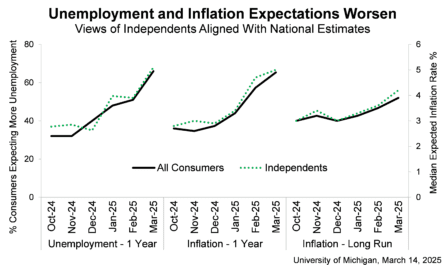IRS data shows Michigan households could lose crucial federal tax refunds if proposed Republican budget changes take effect.
In Lansing on June 18, 2025, Gov. Gretchen Whitmer warned that a proposed U.S. House Republican budget bill would impose “dangerous attacks” on the federal Earned Income Tax Credit Michigan, potentially stripping more than 700,000 Michigan households of thousands of dollars in annual refunds.
Earned Income Tax Credit in Michigan could drop by thousands for large families

Under the plan, families with three or more children in Michigan—who currently receive up to $10,000 annually via the EITC—could see that support evaporate due to new red tape and documentation requirements. The IRS data shows roughly 676,000 Michigan claims averaging $2,813 per filer for 2023.
New federal pre-certification hurdles threaten access and equity
The proposed legislation would compel EITC claimants to pre?certify each qualifying child annually, requiring a certificate before filing. This added bureaucracy, combined with ongoing IRS staffing shortfalls, could prevent hundreds of thousands from submitting valid claims starting in 2028.
State-level EITC expansion offers a partial buffer
Since 2023, Michigan has boosted its state-level credit, increasing its match to 30% of the federal EITC via the Michigan Working Families Tax Credit. This move quintupled the credit from 6%, delivering an average total refund of approximately $3,150 to around 700,000 families.
Voices of support: unions, nonprofits, and aging advocates speak out
Ron Bieber, president of the Michigan AFL?CIO, condemned the Republican plan as “taking from the working class so they can give billionaires a tax cut,” calling it “unacceptable”. Monique Stanton of the Michigan League for Public Policy said the changes would burden low-income families, asserting the EITC “helps hundreds of thousands of Michiganders make ends meet each year,” noting its origins under President Gerald Ford. Lori Stephens?Brown, director of Marquette Aging Services, described the credit as “a lifeline,” especially for seniors.
Why Michigan stands to lose the most
Michigan’s reliance on EITC is slightly above the national average, with a 2023 average credit of $2,813, compared to a nationwide average of $2,743. With most of the state’s credit tied to low?income parents and seniors, increased barriers may exacerbate food, housing, and utility insecurity.
What this means for Michigan: households strapped for essentials
Families often spend EITC funds on groceries, utilities, fuel, and school supplies. The Whitmer administration noted that nearly 50% of Michigan children live in households benefiting from the tax credit. Blocking access will magnify hardship during economic uncertainty.
State leaders vow to shield residents from federal cuts
Whitmer and Lieutenant Governor Garlin Gilchrist II pledged to “Stand Tall for Michigan” by continuing state support through the Working Families Tax Credit and other cost-saving measures. Their defense of the credit complements broader initiatives: codifying the ACA into state law, expanding school meal programs, affordable housing investments, rural broadband projects, and workforce grants .
Expert perspective reinforces warning
Economists stress the EITC’s efficiency. A recent IRS analysis shows low-income workers benefit more from an expanded EITC than from minimum-wage increases. Crippling access may undercut progress in poverty alleviation.
Looking ahead: what’s next in the EITC Michigan debate
The House bill must pass the Senate and be signed by the president. Michigan’s congressional delegation has largely opposed the changes. Activists are urging citizens to contact lawmakers. Meanwhile, state officials are exploring potential legal challenges or state-level compensatory measures.
Related stories:
- Michigan families brace for impact of IRS staffing cuts on aid distribution
- Local Michigan nonprofits report increasing demand amid rising child poverty
Read More Interesting Feature Stories From ThumbWind
• Michigan Feature News Stories – Unveiling the diverse and vibrant people, captivating places, and remarkable events that come together to make the Great Lake State unique.
• Strange Political News – A sarcastic take on official news from around the U.S., exploring the absurdities that often arise in the political landscape while providing a humorous perspective on current events and highlighting the quirks of politicians and policies.
• Michigan Hometown News – News and events from Michigan’s Upper Thumb region worth knowing, including local stories, impactful interviews, and updates on community happenings that shape the culture and lifestyle of the area.
Your Turn – Like This, or Hate it – We Want To Hear From You
Please offer an insightful and thoughtful comment. We review each response. Follow us to have other feature stories fill up your email box, or check us out at ThumbWind News




